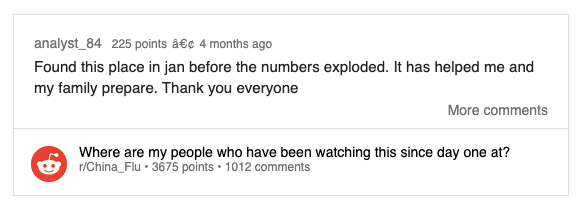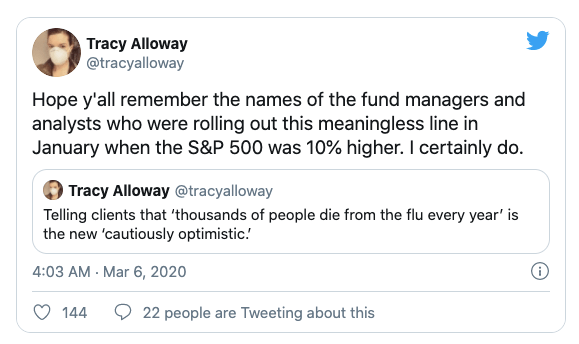Online Communities - The First Line of Defense
— Community — 2 min read
As the novel coronavirus began to spread in early January, a subreddit called r/coronavirus saw a spike in activity. Users on the platform came together to share information and discuss the situation in Wuhan. They were able to share leaked footage from the Hubei province, despite censorship efforts. Instead of focusing on the censorship itself, this article will examine how online communities played a role in the fight against the pandemic.
Platforms like Reddit and Twitter have the potential to democratize information by fostering a sense of trust and community among users. On Reddit, where pseudonyms are the norm, trust is built into the platform, while on Twitter it is earned through interactions and engagement. Trust is a crucial currency on these platforms, as it allows for the formation of niche communities and can also lead to their dissolution.
On a subreddit, control of information is typically given to volunteer content moderators. In order for these communities to thrive, users must entrust strangers with significant power over their online presence. When heavy censorship occurs, autocratic moderators can be held accountable, and communities may shift to different platforms. However, efforts to spread disinformation are met with swift condemnation from moderators, thus enabling curated and fact-checked data to reach the public.
At the time of this writing, the r/coronavirus subreddit has grown to 1.6 million members, with notable figures such as Bill Gates participating in discussions. Additionally, a new subreddit has been created specifically for discussing scientific research related to the virus, including the potential effectiveness of different therapeutics.
Twitter functions in a similar manner where users tend to congregate with individuals who share similar perspectives, resulting in the formation of subcultures. Misinformation is often discredited and individuals who intentionally deceive others, known as shills, are quickly called out.
There is no pre-packaged narrative. Doomsday entries attract the alarmist crowd while promises of an imminent return to normalcy appeals to the hopeful bunch. The communities on Twitter serve as gatekeepers of the information that is disseminated.
In order to be successful against the pandemic, it is essential for scholarly information to be condensed, clarified, and made available to the public. Information found in peer-reviewed journals and academic commentaries, such as those found in The Lancet or Nature News, is too valuable to be restricted to only scientists. Twitter provides this information in a condensed format, with tweets limited to 280 characters or less.
Online communities raised awareness about COVID-19 well before mainstream media outlets. Along with epidemiologists and bioinformatics experts, regular citizens from Wuhan were sharing information with the rest of the world. Looking back, those who paid attention to the early warning signs were able to prepare for the worst. The ex-ante predictive capability that emerged from these communities allowed some of its members to salvage their portfolios…


… while most fund managers were still downplaying the pandemic.
Parting Note
The current model of news aggregation is facing significant challenges. While previously, the spread of fake news was primarily facilitated by bots, it is now being replaced by the creation of forged videos and audio recordings. However, in our preoccupation with disinformation, we tend to overlook the value of online communities. As behavioral economist Dan Ariely states,
human beings are inherently social and trusting animals.
Our tendency to trust has turned these communities into reliable sources of information, particularly during crises that require immediate action. However, it's important to remember that trust can be a double-edged sword, and being critical in evaluating the information received is crucial in order to reap the benefits of early warning.